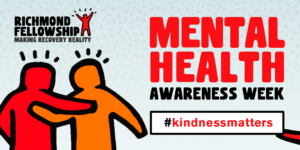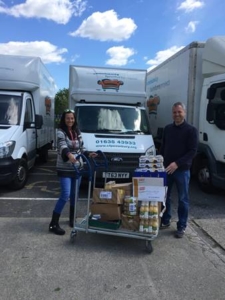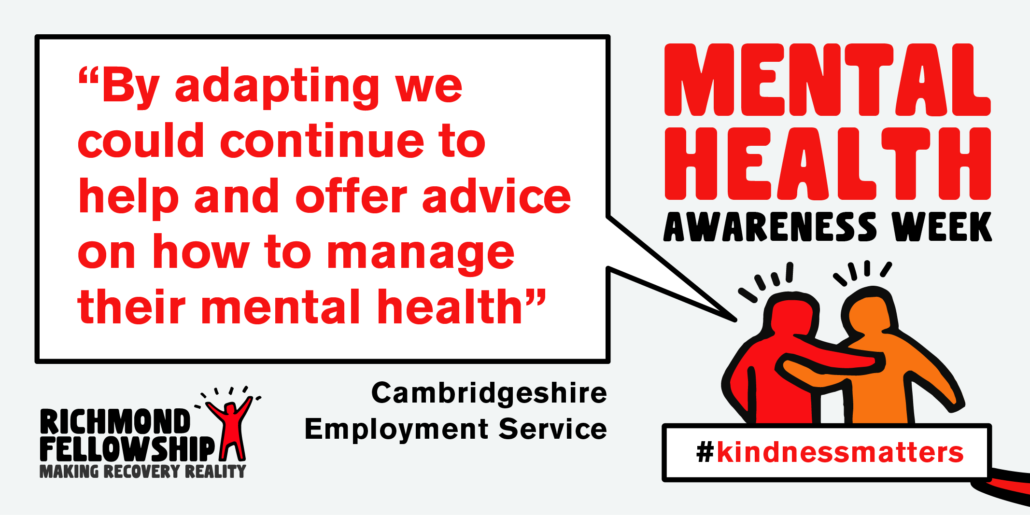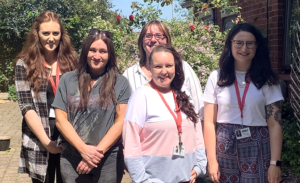
Mental Health Awareness Week is unsurprisingly a key week for our group of charities. Richmond Fellowship is one of the biggest voluntary sector providers of mental health care in England, supporting over 11,000 people every year through nearly 150 services. As a group we also deliver support to people affected by domestic abuse, substance use and gambling– and we know the role that mental health plays in all this areas.
We are first and foremost service delivery organizations, and in many places our services deliver their support to the people who need it most, often with little fanfare. So Mental Health Awareness Week has always been a great opportunity for our services to talk to local and regional audiences about what they do and why mental health matters. As the week has grown in stature and influence every year, it is helping to remove the stigma around talking about mental health and we always want to be part of that conversation.
Yet this year Mental Health Awareness Week has almost snuck up on us. Perhaps for obvious reasons as we’ve all been working flat out during the pandemic to ensure that our services continue to be there for the people who need it most. Our usual methods of marking the week – through events, stalls, talks, flyers etc – simply aren’t available to us this year. However this is also a time when people are thinking, and talking, about their mental health more than ever.
Hosted by the Mental Health Foundation the theme this year is kindness (#KindnessMatters), and the focus is on what sort of society we would like to emerge from the coronavirus pandemic. With that pandemic in mind and all consuming, we’ve had to really think about what we want Mental Health Awareness Week to mean for us in 2020.
We are phenomenally proud that throughout the pandemic, thanks to our staff’s hard work, all of our services have remained open.
The more we thought about, the more it was obvious that this needed to be about our staff. Keeping the people we support mentally well and their recovery journey on track has been as big a challenge as keeping people safe from the virus. We are phenomenally proud that throughout the pandemic, thanks to our staff’s hard work, all of our services have remained open. Many staff have had to rapidly adapt how and where they work, and many have continued to go in to work in order to keep residential services open and stable.
All over the country our staff are going above and beyond in helping people on their recovery journeys. Our services are partnering with local foodbanks, community projects and mutual aid groups with signposting and deliveries. Staff have also helped tenants source food and hygiene supplies keeping them safe especially if they are self-shielding. In other services, staff have made special deliveries of cake and cards to the people we support reminding them that we are here for them as a community not just a service. Social distancing may have exacerbated isolated individuals’ situations but our staff have stepped up to the challenge. New virtual groups have been formed in partnership with the people we support. Through Zoom, Whatsapp and telephone our staff are providing vital companionship, prompting conversations and maybe even just saying hello.
Nearly 50% of our staff are frontline Recovery Workers, directly supporting people on their recovery journey. They are the key workers who we are happy to see increasingly recognized by the general public as the pandemic has taken hold. Their kindness has always been apparent to us and the people we support, and we hope that the society that emerges on the other side of this will be one that continues to value and thank them.
We’ll be thanking them especially this week, and putting the spotlight on their hard work. Throughout Mental Health Awareness Week we’ll be talking more about how they’ve adapted to keep services running, their acts of kindness and how they’ve been looking after their own mental health as well as that of the people we support. We hope that by using #mentalhealthawarenessweek to recognize our staff we’ll help you understand the importance of their work – now and well into the future.
 The project is delivering food parcels to the vulnerable, needy families around Newbury and West Berks on its own. Our service already had a good relationship with the project and we had a conversation with them about whether they would be happy for us to collect food direct from them to deliver to our service users. Our most vulnerable, self shielding and low income families received a parcel and it reduced the amount of deliveries the project staff would need to do.
The project is delivering food parcels to the vulnerable, needy families around Newbury and West Berks on its own. Our service already had a good relationship with the project and we had a conversation with them about whether they would be happy for us to collect food direct from them to deliver to our service users. Our most vulnerable, self shielding and low income families received a parcel and it reduced the amount of deliveries the project staff would need to do.


















